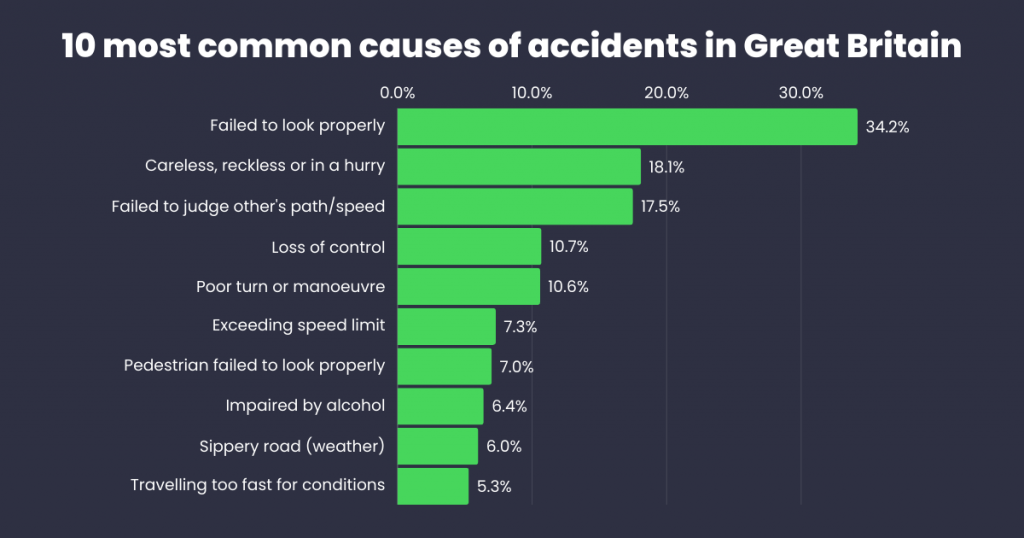Last Updated on February 20, 2025
Driving is an important life-skill that requires both knowledge and practical experience. For learner drivers, mastering defensive driving skills is essential not only for passing the driving test but also for ensuring safety on the road when learning to drive or once they have passed their test. Defensive driving is a set of driving techniques that help reduce the risk of accidents by anticipating potential hazards and making well-informed decisions. This blog will delve into what defensive driving involves, the benefits it offers, and why it’s especially important for learners and new drivers on the roads.
What Is Defensive Driving?
Defensive driving refers to a set of advanced driving techniques that aim to protect drivers from the risks associated with being on the road. It involves staying vigilant, anticipating potential dangers, and making informed decisions to avoid accidents. Unlike aggressive driving, which is often reactive and impulsive, defensive driving is proactive. It requires a deep understanding of traffic rules, vehicle dynamics, and road conditions, along with the ability to anticipate the actions of other road users

Risk Avoidance on the Road
At its core, defensive driving is about risk avoidance, whether it by from yourself, such as stalling your car, other road users or external factors, including road conditions. This means maintaining a safe distance from other vehicles, adhering to speed limits, and being mindful of your surroundings. It also involves being prepared for the unexpected, such as sudden stops, adverse weather conditions, or the reckless behaviour of other drivers.
One of the most fundamental aspects of defensive driving is avoiding road hazards. This involves recognising potential dangers early on, such as a car veering into your lane, a pedestrian crossing unexpectedly, or debris on the road. By being aware of these hazards and knowing how to react, a defensive driver can prevent accidents before they occur.

Source: https://www.gov.uk/government/organisations/department-for-transport
The Benefits of Defensive Driving
The benefits of defensive driving extend beyond just avoiding road accidents. By applying these techniques, road users can enjoy a safer and more confident driving experience. Here are some of the key benefits of defensive driving:
Reduced Risk of Accidents
Defensive driving can potentially lower the chance of being involved in a road accident. By anticipating potential hazards and making informed decisions, drivers can potentially avoid collisions and other dangerous situations. This is particularly important for learner drivers, who may not yet have the reflexes or experience to react quickly to sudden dangers.
Reduced Fuel Consumption
By driving smoothly, avoiding rapid acceleration and hard braking, and maintaining a steady speed, you use less fuel and therefore can reduce fuel consumption. This can potentially lead to significant cost saving over time. In addition to being cost-effective, reduced fuel consumption also has environmental benefits. Making defensive driving a win-win for both your wallet and the planet.
Improved Confidence
Learning and applying advanced defensive driving techniques can greatly enhance a driver’s confidence on the road. Defensive driving teaches you to be more aware of your surroundings and better prepared for unexpected situations. Which may reduce anxiety and make driving a more enjoyable experience. For new or less confident drivers, this boost in confidence is invaluable.
Enhanced Road Awareness
Defensive driving encourages drivers to be more aware of their environment. This includes monitoring the behaviour of other road users, keeping an eye on traffic patterns, and being mindful of road conditions. This heightened awareness can help you spot potential hazards early and take the necessary actions to avoid them.
Long-Term Safety
The skills and habits developed through defensive driving can lead to a lifetime of safer driving. By consistently applying defensive driving techniques, you reduce the likelihood of being involved in accidents, not just as a learner or new driver but throughout your driving career. This long-term safety benefit is one of the most compelling reasons to apply this approach to driving.

Get a learner driver insurance quote today!
Conclusion
Defensive driving is an essential skill for all drivers, particularly for those who are still learning or have recently passed their test. By understanding and applying defensive driving techniques, drivers can significantly reduce their risk of accidents, gain confidence, and ensure a safer driving experience. For learner drivers in the UK, mastering these techniques is not just about passing the test but about cultivating good habits that will keep them safe on the road for years to come.
By staying vigilant, being prepared for the unexpected, and making safe choices, you can navigate the roads with confidence and care. Whether you’re just starting your driving journey or looking to improve your skills, defensive driving is the key to staying safe and secure on the road.
FAQs
Defensive driving focuses on anticipating potential hazards and making safe decisions, while aggressive driving is often impulsive and risky, such as speeding or tailgating.
You can practice defensive driving by staying aware of your surroundings, maintaining a safe distance from other vehicles, and being cautious at intersections. It’s also helpful to take a defensive driving course to learn advanced techniques.
Defensive driving helps avoid road hazards by teaching drivers to be more aware of their surroundings and to anticipate potential dangers. This includes recognising risky behaviour from other drivers, spotting obstacles on the road, and adjusting driving to suit different conditions, such as heavy traffic.
While defensive driving techniques are not explicitly tested, they are an important part of safe driving and can help you perform better on the test by making you more aware and prepared.
Absolutely. Defensive driving teaches you to adjust your driving to suit conditions, such as slowing down in rain or fog and maintaining a greater distance from the vehicle ahead, which is crucial for staying safe in bad weather.









